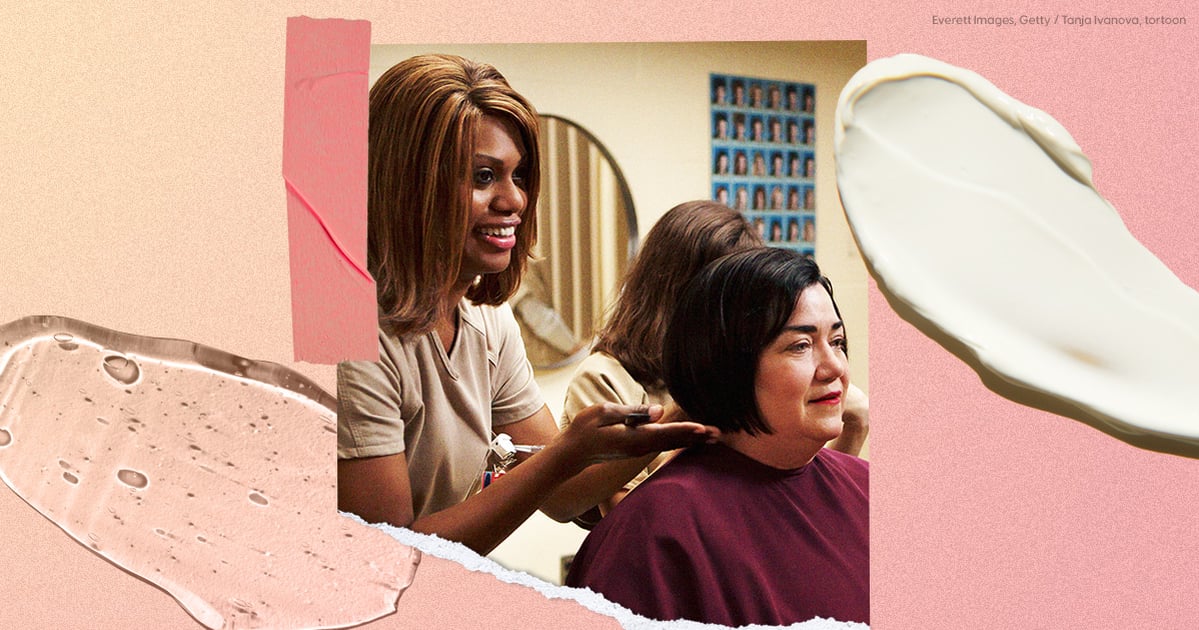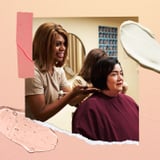In May 2023, the United States Surgeon General, Vivek H. Murthy, MD, declared that the nation was suffering from an “epidemic of loneliness.” An official advisory claims that “even before the onset of the COVID-19 pandemic, approximately half of U.S. adults reported experiencing measurable levels of loneliness.” In addition to noting the mental- and physical-health problems that can arise due to isolation, the Surgeon General outlines ways to combat the epidemic, one of them being to “design environments that promote connection.”
If there is any concrete proof that this tactic is effective, it’s the cosmetology program at Coffee Creek Correctional Facility in Wilsonville, OR.
In an environment where physical touch is restricted, loneliness is certain to fester. Coffee Creek’s program, which has been supported by professional-grade skin-care brand Dermalogica since 2019, provides a space where incarcerated women have a rare opportunity to not only connect physically and emotionally, but also gain valuable skills that prepare them for a career in beauty.
“We felt that we had an opportunity to be able to support these women in garnering a skill set where they could potentially start their own business on release,” Heather Hickman, the vice president of education at Dermalogica, tells POPSUGAR. The brand has provided Coffee Creek with Dermalogica products, equipment such as LED machines, and two Dermalogica educators who lead trainings via Zoom each month.
“In addition to that, it’s turned into a very unexpected way to be able to create human connection in a correctional facility where there is no human connection,” Hickman says. “The only place that the women in this program are able to have any form of touch is when they’re in this program every week.”
Hickman also points out that the intimate nature of cosmetology services, especially skin care, requires a level of safety and trust that the students wouldn’t otherwise have an opportunity to build. “You have to have the person that you are doing that service on really trust you,” she says. “So it’s learning how to create that trust and build up their own self-esteem.”
Coffee Creek’s cosmetology instructor, Tammy Kennedy, teaches 20 students at a time, taking them through the rigorous state-mandated program that covers hair, nails, and aesthetics. At the end of roughly 1,835 hours (which typically takes anywhere from 15 to 18 months to complete), students are licensed cosmetologists in the state of Oregon and able to work in the field upon release. Anyone in the facility can apply; all they have to do is send a request to Kennedy and meet a few prerequisites (such as have their high school diploma or GED).
The days start early at 6:30 a.m. and include hands-on practice on each other, client appointments, and lessons on theory – but the students also gain so much more, like a sense of confidence and accountability. “It’s making me take care of myself every day,” says Stephanie, a current student at Coffee Creek. “And then I can take care of other people. And being held accountable. Tammy holds us accountable for everything, almost down to our thoughts. I just want to keep being the best version of myself.”
On another level, providing and receiving treatments has helped Stephanie connect with her community in a way she hadn’t experienced before. “It makes you see that everybody is a person,” she says. “It’s helped me not judge people so much right off the top and really take into account that everybody has a story whether they’re on this side of the gate or the other side of the gate. All of the touch therapy adds a different layer to that.”
For student Jasmine, Coffee Creek’s cosmetology program has given her a second chance at achieving her goals. “I always liked making people feel good about themselves, and this is definitely the program to do that,” she says. “I never went to college, didn’t graduate high school; I got my GED here [at Coffee Creek]. Because of all those things that I didn’t do that prohibited me from becoming what I wanted to become, this was my opportunity. I come out licensed, I come out with a career. I just knew that this was my chance. I just wanted to go for it.”
A true testament to the positive impact of the program: Amber, who completed her studies at the start of 2024, transitioned immediately into a role as a master educator. Along with three other educators, Amber assists the students with services, and on the days they’re learning theory, she’s up in front of the class, teaching.
“It’s a different perspective,” she says of her new role. “You’re going from being a fellow student to helping the students. It’s helping me work on things that I needed to personally work on, like setting boundaries and being more assertive. So I’m enjoying it. I just love being in here.”
Amber, who calls herself “everybody’s biggest cheerleader,” says that for herself and many other women at Coffee Creek, a boost of confidence can make a world of difference. “The biggest thing for me is and I think for a lot of women in here is we all lack self-confidence, self-esteem,” she says. “This program makes us get up every day. We have to care about the way we look and care about the way we present ourselves to the other AICs [adults in custody], to the staff members that come in here. That’s been huge for us, especially for me.”
In a post-COVID world, where social distancing and no-contact deliveries have become the norm, the Surgeon General notes that social connection and proximity to others are crucial for our well-being. This theory undoubtedly applies to correctional facilities, which are inherently and purposefully isolating. Connecting in meaningful ways, he states, is the surest way to decrease the “epidemic of loneliness” – and it seems, at least among Coffee Creek’s cosmetology students, the remedy has certainly taken effect.




